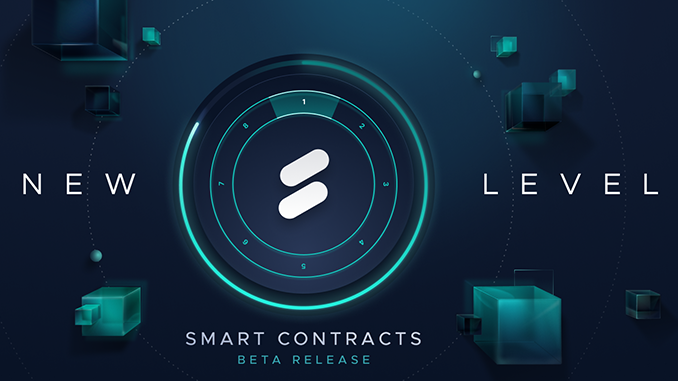
IOTA releases long-awaited functionality for smart contracts as a beta, but for now only on the IOTA 2.0 DevNet for testing purposes. Practical details for the future sound attractive.
Smart Contracts are the basis for Decentralized Finances (DeFi), DApps, many NFT projects and other innovative use cases in the crypto industry. Led by Ethereum (ETH), various successful altcoins are building entire ecosystems around their cryptocurrency with the help of smart contracts. Of course, IOTA does not want to lag behind and now reports an important progress. In a blog post, the IOTA Foundation announces the release of Smart Contracts as a beta. The protocol for IOTA Smart Contracts in the alpha version has been available at IOTA since March 2021.
IOTA Smart Contacts – what’s special about it?
In a tweet, IOTA summarizes the basic pillars that should distinguish IOTA Smart Contacts in Tanglenet. The integration of the Ethereum Virtual Machine (EVM) is just as much a part of it as compatibility with foreign blockchains and the fee-free principle of IOTA. In an interview, IOTA CEO Dominik Schiener raves about the “wet dream of every DeFi provider.”
However, a closer look quickly makes it clear that IOTA still has a long way to go before smart contracts are ready for practical use. Current functionalities are limited to the DevNet for a decentralized IOTA 2.0. However, this testnet needs to be reworked from the ground up, as the IOTA Foundation admitted this summer. This means that decentralization as a cornerstone for trust in smart contracts in the IOTA Tanglenet has receded into the indefinite distance for the time being. The abolition of the central coordinator envisaged under the name Coordicide by IOTA 2.0 is meanwhile expected for 2023 at the earliest.
But until then, the IOTA Foundation wants to establish an alternative solution and bring smart contracts into the mainnet under the current IOTA 1.5 aka Chrysalis. Announced as early as August 2021, this is now confirmed. Given the fundamental differences between the planned IOTA 2.0 and the current IOTA 1.5, the focus from now on will be on making smart contracts usable in the current environment, the blog post states.
This crucial note must be kept in mind when it comes to classifying the progress made with IOTA Smart Contracts. As good as the features sound, from no fees to support for multiple programming languages, smart contracts that succeed elsewhere in the crypto industry naturally run permission-free via decentralized blockchains. So for the time being, the only thing that actually seems possible is for smart contracts to be used in private IOTA networks by companies, for example, where one could get involved with a centralized entity.
Conclusion: IOTA Smart Contracts only a concept for the time being.
For those who want, a digital roulette here provides a demo of what smart contracts can do under IOTA. For investors, however, the be-all and end-all for evaluating remains the question of when smart contracts are really ready for money-making applications under IOTA. Cardano (ADA) recently experienced a belly-landing in practice during its grandly announced introduction of smart contracts because requirements were misjudged by developers and users. In the case of IOTA, however, even the transfer of smart contracts to the mainnet is still completely uncertain in terms of timing and, with the requirement for decentralization, is so far only a concept. So for the time being, IOTA, for all its official optimism, is just watching from the sidelines as smart contracts enable DeFi and more every day for Ethereum, Solana (SOL) and many other altcoins.
Best place to buy Bitcoin and IOTA:

Leave a Reply